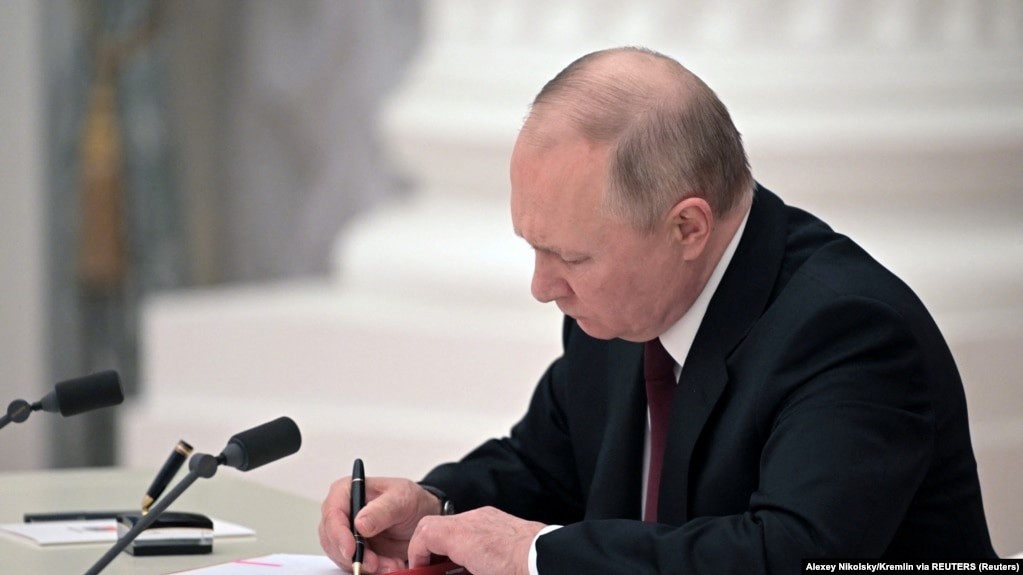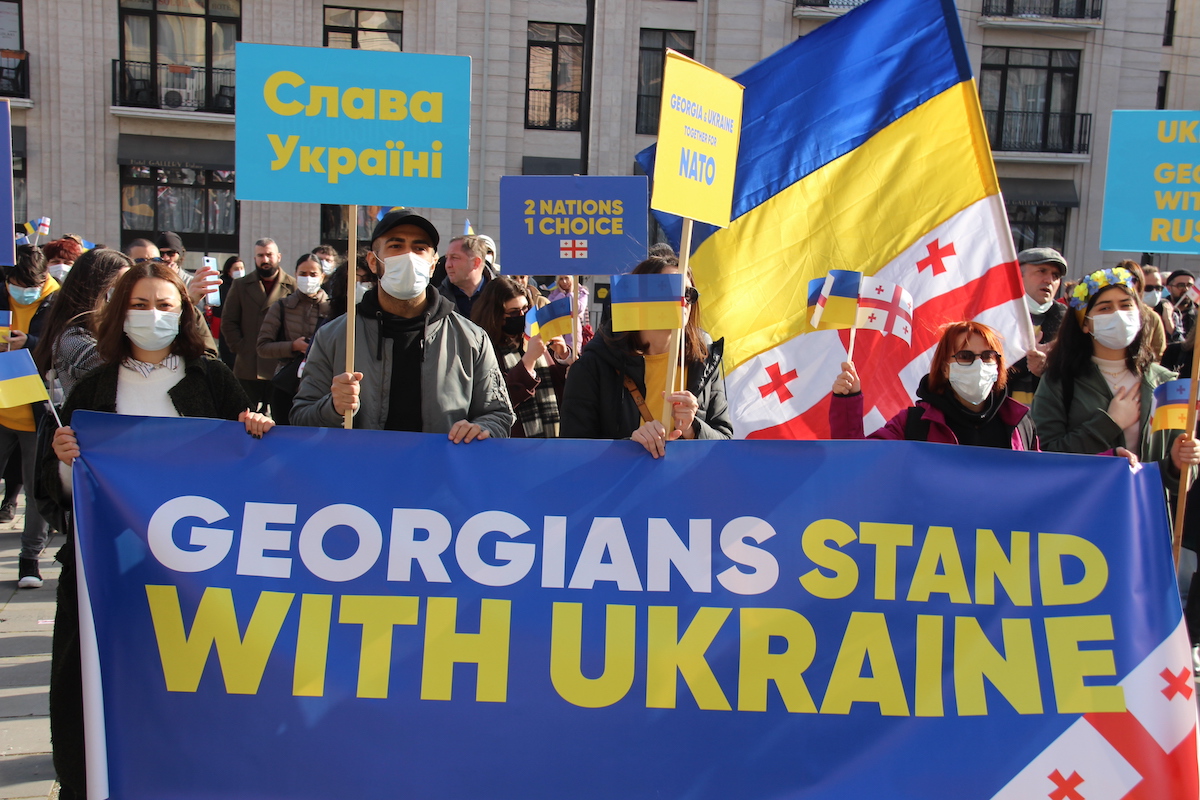Azerbaijani expert: "Putin did not surprise us this time"
Azerbaijan’s response to Putin’s recognition of LNR and DNR
The expected decision of Russian President Vladimir Putin to recognize the independence of the DNR/LNR was perceived negatively in the Azerbaijani society. Political scientist Shahin Jafarli notes that he is not at all surprised by the behavior of Azerbaijan’s northern neighbor.
- Op-ed: Russia intends to create ‘league of dwarf states’
- Baku analyst: “Moscow inspires separatist sentiments in Karabakh”
- Ex-President of Armenia: It is naive to believe that the CSTO will respond if Armenia is attacked
- Transformation of conflicts in the Caucasus: from Western world to Russian
“He could not uphold the image of an “unpredictable leader” and made a decision that was expected even by those who are very far from international politics – and his appeal was full of hysteria.
After his ultimatums to NATO and the US were rejected before the eyes of the whole world, Russia only managed to formalize the occupation and military presence in eastern Ukraine, which has already lasted eight years.
Throughout this time, Moscow tried in vain to introduce these ‘toy republics’ into Ukraine: “Plan A” provided for the federalization of Ukraine in this way and the preservation of this country in its zone of influence. Despite the pressure, the Ukrainian government rejected such a dangerous scenario.
The decision to recognize the breakaway republics was Russia’s “Plan B”. With this decision, it completed the Minsk process, and, henceforth, Ukraine has no obligations arising from those agreements.
With this decision, Russia lost its last instrument of pressure over Kyiv. Thus, no army will be able to subjugate Ukraine, and Ukraine got the opportunity to crush the “fifth column” associated with Moscow inside the country.
At the moment, we are witnessing the final stage of the rejection of Ukraine from the “Russian world” and a large rift among the Eastern Slavs. In the future, Russian historians will not write anything good about Putin, who created an enemy from a brotherly nation.
Until 2014, Euro-Atlantic integration in Ukraine was supported only by the Western part of the country, it was divided into two poles with different political and cultural views. The national identity of Ukrainians was still not formed, the Russian language was the main means of communication, no more than 25% supported the country’s entry into NATO. Ukraine also had the status of a neutral state.
In 2014, Putin unleashed a war against the fraternal country, began to occupy its territories, turning everything upside down: external occupation led to the growth of nationalism. Within a few years, the national identity of Ukrainians began to form and the difference between thinking in the eastern and western parts of Ukraine was leveled. Thanks to Putin’s policy, a united people of Ukraine is being formed.
Today, support for the country’s accession to NATO has reached 65%. Even in the eastern regions, more than half of the population supports Ukraine’s entry into the European Union, although support for joining NATO is slightly lower – 40%
Putin also gave a second wind to NATO: while he demanded the withdrawal of the alliance’s forces from Eastern Europe, he faced an increase in NATO’s presence in the region. By its actions, Russia has returned the United States, which has already shifted its views to Asia, to the center of Europe.
In the post-Soviet space, building a new empire without Ukraine does not make any practical sense. Putin’s Russia, which has fallen into a deep demographic hole, with rapidly dwindling human and labor resources, is experiencing a chronic socio-economic crisis and has cut itself off from the modern world, with no future prospects for development.
Putin began his journey in the hope of becoming Ivan the Third, but in reality, he looks more like Nicholas II”, Jafarli wrote on social media.




















